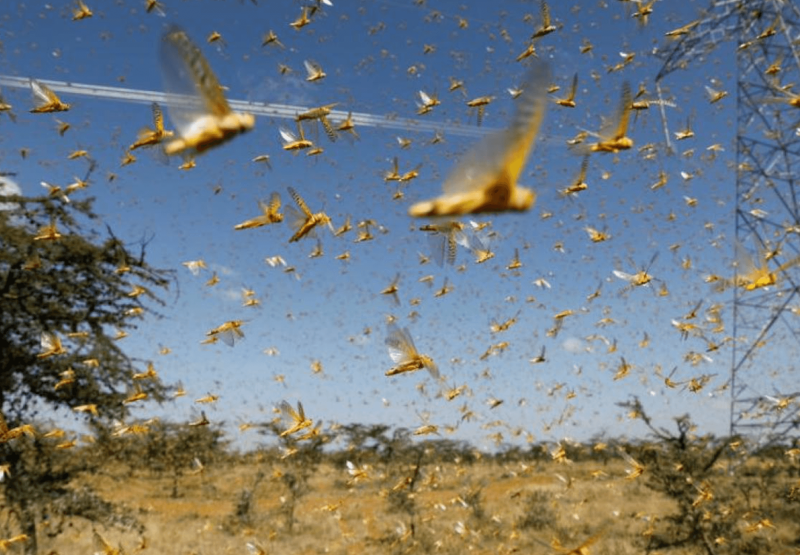Eat them, poison them, and use scent to drive them to cannibalism – as a second wave of locusts threatens to devour East Africa’s crops, scientists in a Nairobi lab are experimenting with novel ways to kill them.
Swarms are the worst for three generations, encouraged by unseasonably wet weather and dispersed by a record number of cyclones. The destructive pests could cost East Africa and Yemen $8.5 billion this year, the World Bank has said.
Locusts are usually controlled by spraying them with pesticides before they can fly, but the chemicals can damage other insects and the environment.
So scientists at the International Centre of Insect Physiology and Ecology (ICIPE) are experimenting with biopesticides and the use of locusts as human and animal food as they look for environmentally-friendly extermination methods.
…
ICIPE is developing nets and backpack-vacuums to capture large numbers of locusts. The protein-rich insects can then be cooked or crushed into meal or oil suitable for animal feed or human consumption. ICIPE organizes regular events to normalize the consumption of insects.
Researcher Chrysantus Tanga eats the insects himself. In the ICIPE cafe, the heads, legs and wings have been removed.
“They have to make it presentable for a first-timer,” Tanga said motioning towards colourful plates of locust-based meals prepared by ICIPE chefs, ranging from deep fried with tartar sauce, to skewered among vegetables in a kebab.































